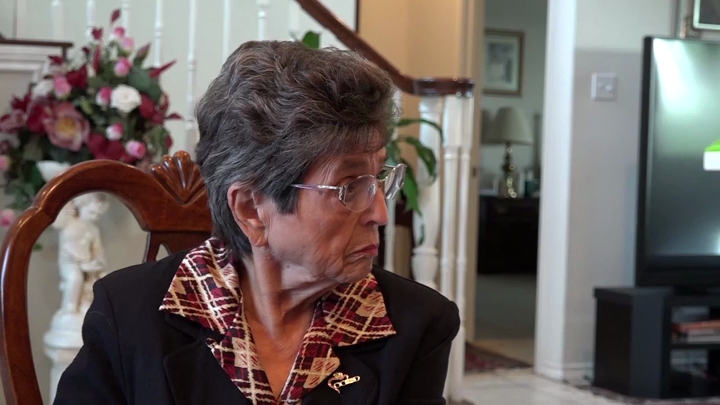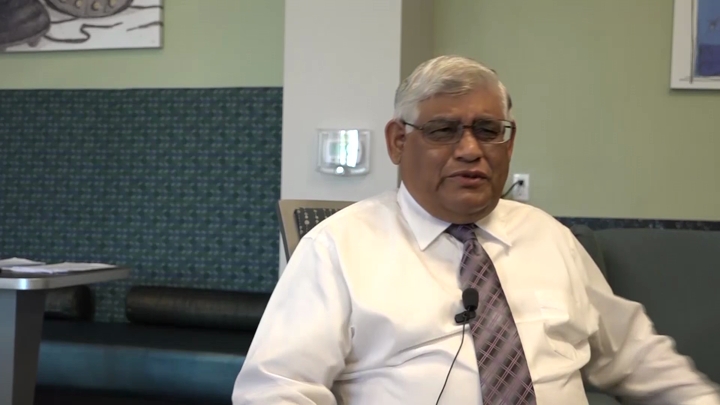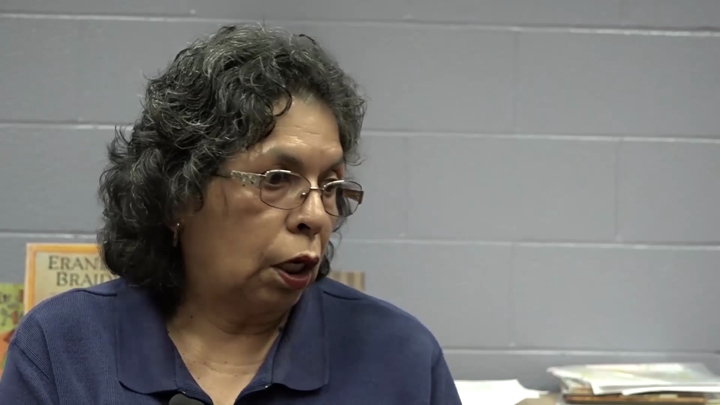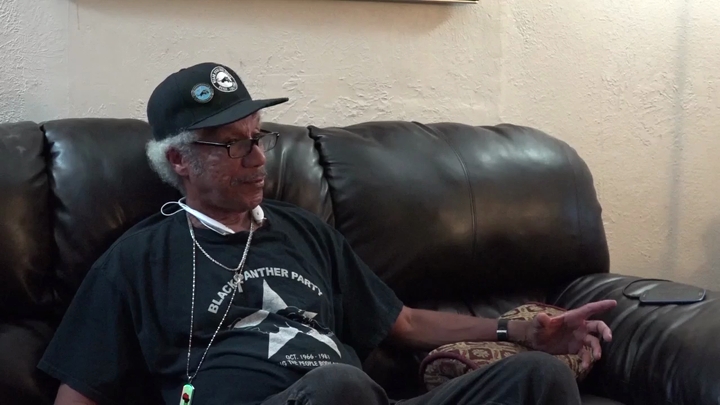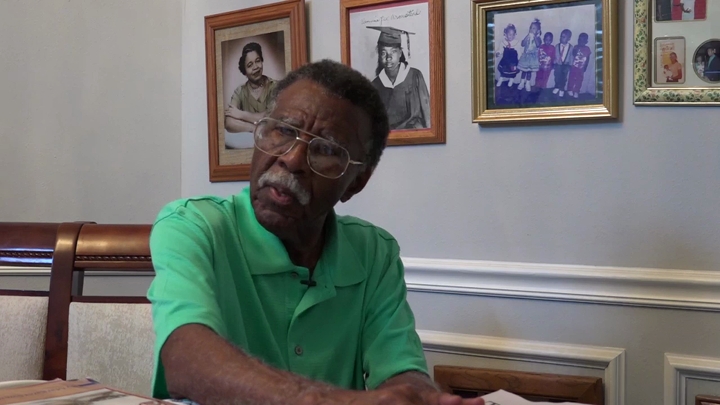Montejano / Supportive Teachers
sign up or sign in to add/edit transcript
Montejano: Talking and they- that’s when I started getting very, very angry. I was the editor of the newspaper. I used to write some pretty controversial editorials. I was protesting the Vietnam War at that time. That was in ’67-’68. I was advocating for women priests, for priests to get married. All of this was coming out in the the lasted sixties. In ’68. I was taking those stands. Luckily for me, my advisor, who was a nun, Sister Margret, her name was Sister Subina at that time, bless her heart. May she rest in peace because I loved that nun. She defended me and my rights as an editor and to speak my mind. Just put “in no way does it reflect the opinions”- you know what they do now. She used to make me do that-“In no way does this reflect the opinions of the School of Little Flower.” I was, okay, I’ll do that. Arionus: I read a story about you that a nun gave you a book to read. The autobiography of Malcolm X? Montejano: Yes, that was in high school. That was sister Subina, Sister Margaret. Well, because I was in trouble a lot in high school. I was in trouble all my school life. You know, I think if I would have one of today's kids, I would have been classified as ADHD or something like that. My brother, my brother next to me, Johnny because we were always halandos. Anyway, I was always in trouble in high school also. Sister Augusta, that principal, use to put me to help mister- Sergio’s father- Mr. Maturino clean the school- dust the walls, clean the windows, polish the floor, wash the dishes from the cafeteria, do this, do that- those were my punishments. And Sister Subina went in and said “It doesn’t seem to be working. Whatever punishment you are giving her does not seem to be working. Why don’t you let me handle her.” I imagine that’s what happened because all of the sudden, Sister Augusta – she was mean- said “You are not coming to me anymore after school. You just go straight over there.” She said, “ Meet me in the library.” I would meet her in the library. I started reading some stuff she would give me to read. And she comes with those big habits, you these big habits with deep pockets. She gave me something to read. She gave it to me on the weekend. I’ll never forget that. She said take this home, you read it, and tell me what you think. That was the first book- the autobiography- I still have that book. It is falling apart man, but I still have it. WOW! Then she gave me Catcher in the Rye by J. D. Salinger. She gave me The Jungle. She gave me all these angry books [laughs]. At that time he was Leroy Jones, now he is Amari- The Iceman Cometh. I read all these books. She was like “what do you think?” And said, “Why don’t you write something about it?” That is when I started writing. I wrote my very first research paper was on African American literature and Langston Hughes. I did the Harlem Renaissance and it was awesome. That is how she got me away from all the travesuras (?) I use to do. It got to the point I did not need to be punished because I was already there. You know, she’s the one that told me “you have a gift.” When I did my thesis, I dedicated- I wrote about her and told people about the books that she- they were the banned- later on I found out. How she got them I do not know but she gave them to me and they were on the list of banned books. All those books I just mentioned. She said, “Read this. Read this. What do you think?” She was from Ireland. She did not have the same, which was incredible. I think up until then all my experiences were negative. Until- and I take that back. I had some positive experiences with like Sister Josephine. She would defend me- “traviesa, what do you expect?” I mean I was a traviesa. What happened? She treated me kindly and respectfully and she encouraged me to run for the editor of the newspaper at the high school. I won. I ran and I won. By one vote, but I won. So I used to use that editorial page as my voice to protest. That was high school.
| Interview | Interview with Diana Montejano |
| Subjects | Education › Secondary Education |
| Education › Black Studies | |
| Education › Education and Gender | |
| Education › Teachers and Administrators | |
| Education › Private and Parochial Education | |
| Historic Periods › Late 1960s [Exact Date Unknown] | |
| Student Activism | |
| Gender and Sexuality › Feminism | |
| Gender and Sexuality › Women's rights | |
| Media › Student Newspapers | |
| Military › Vietnam War › Anti-war Movement | |
| Tags | sign up or sign in to add/edit tags |
| Interview date | 2016-06-29 |
| Interview source | CRBB Summer 2016 |
| Interviewees | Montejano, Diana |
| Interviewers | Arionus, Steve |
| Sinta, Vinicio | |
| Locations | San Antonio, TX |
| Duration | 00:06:41 |
| Citation | "Supportive Teachers ," from Diana Montejano oral history interview with Steve Arionus and Vinicio Sinta, June 29, 2016, San Antonio, Civil Rights in Black and Brown Interview Database, https://crbb.tcu.edu/clips/4214/supportive-teachers, accessed February 25, 2026 |


